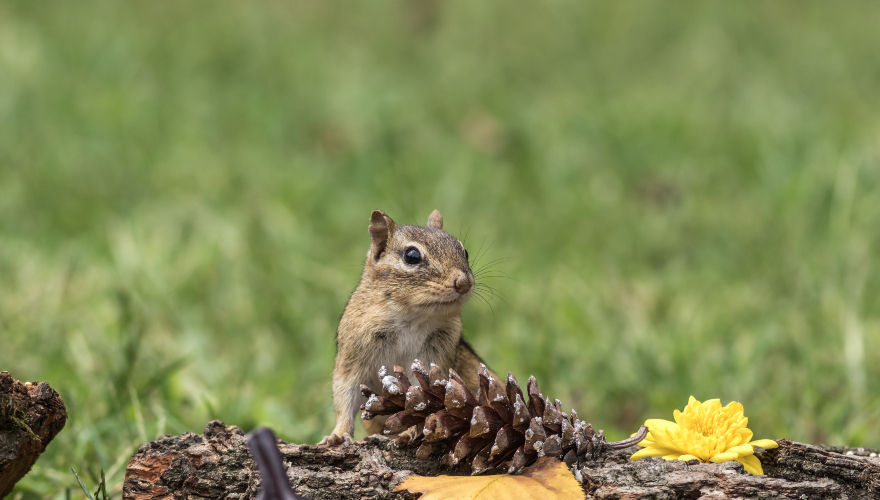Sometimes I forget that my imagination didn’t form itself.
I didn’t come from a family of writers, so at times it’s easy to look at authors who do and think about what an upper hand they had on me. But now I’m beginning to wonder if it’s less about what kind of people we were born to and rather how those people taught us.
As I walked with my son today along the forest edge of our yard, I asked him questions about what we saw. What do these pine needles feel like? What color are these flowers?—and so on. As we passed by a group of mushrooms, I asked him if he thought maybe grasshoppers used them as beds.
As the words left my mouth, a memory came rushing in like a wind at my back—of my younger self, maybe five or older, walking with my grandmother through the forest. We passed by a stump with chips of a pine cone on top, and she slowed me down in front of it and pointed at it with her frail hand. “You see that there, Lara?” she asked. “That’s where some squirrels had a good meal together.”
With that memory, another one pooled into my mind: My mother walking me through the forest paths in autumn, where our horse trails were completely covered in gold and orange. We had a bag to collect leaves to press in the big books at home—the same books where we had pressed tiny violets from the previous summer. She taught me to notice the beauty around me. She never read or wrote poetry, but she taught me to see the poetry of nature as she dug her hands into the earth to array flowers in just the right way.
When my grade-two teacher told her that my story-telling skills weren’t at the level they were supposed to be, my mom began reading to me every night at bedtime and pointing out things the author had done. “See how she described Nancy Drew’s hair? See how she painted this scene for us with her descriptions?” She further encouraged me to practice writing stories at home, and she read every single one—the terrible and the mediocre—without complaint.
A good imagination isn’t something that you’re born with, or gets handed down to you because of the skills of your family members. It’s given by getting down on a child’s level and showing them how to be imaginative. It happens not just through reading good books but also through showing them why they are good books. It happens when we look at the world with eyes to see the stories that could be told, and tease the curiosity that is already flourishing in the kids we love. When we start to grow weary under all the questions of why and how, we turn and ask them a question—and we admit we don’t know all the answers, and think through the possibilities with them.
I know this because I can look back at the people who cultivated my imagination, and see what they gave me.
I once assumed my kids would somehow inherit my love for storytelling with little to no effort on my part. In that moment outside with my son, I humbly realized how faulty my thinking was, and I was reminded of the hard work ahead of me—of traipsing through forest paths and digging my hands in the mud alongside my son to teach him how to seek and create beauty.
Who cultivated imagination in you? Can you thank them today?
Featured image by wirestock.
- The People Who Cultivated My Imagination - April 3, 2023
- Learning to Give Space for Imagination - November 21, 2022

Leave a Reply